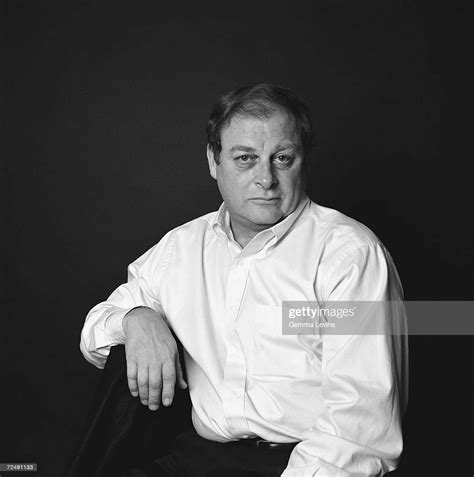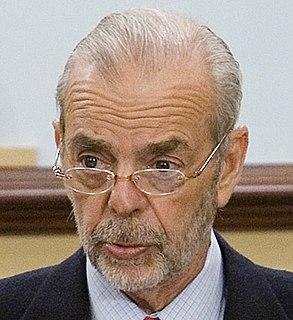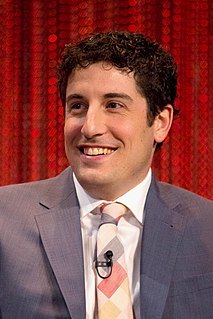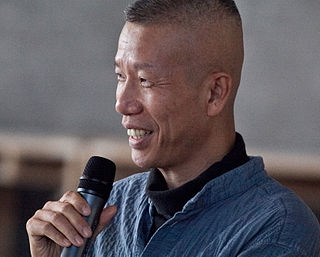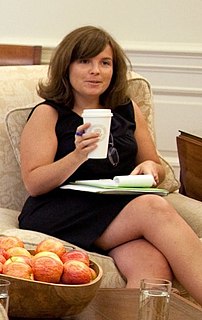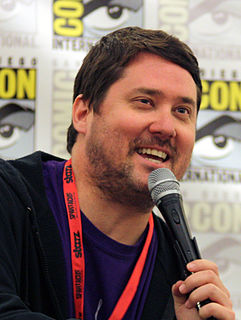Цитата Энтони Холдена
Мало того, что такие люди, как я, могут писать вещи, которые никогда бы не были напечатаны раньше, но я думаю, что в общественном мнении произошли чрезвычайно драматические изменения, возможно, по неправильным причинам.
Связанные цитаты
Я думаю, что опросы важны, потому что они дают людям право голоса. Он дает количественную независимую оценку того, что чувствует общественность, в отличие от того, что думают эксперты или эксперты. Так часто это обеспечивает быструю корректировку того, что считается общепринятым мнением об общественном мнении. Я могу привести множество примеров того, как ошибаются эксперты здесь, в Вашингтоне, Нью-Йорке и других местах, относительно общественного мнения, которое выявляется в ходе опросов общественного мнения.
Я думаю, что опросы — это лучший способ измерить общественное мнение — делать что-то независимое, количественное, что не дает просто громких голосов о том, как идут дела; или не дает так называемым экспертам представления о том, что они знают, что такое общественное мнение. Я думаю, именно поэтому опросы общественного мнения очень важны. Качественные оценки общественного мнения; выходить на улицу и разговаривать с людьми и понимать нюансы того, что стоит за цифрами. Я тоже думаю, что это очень важно.
Я хотел бы играть больше драматических ролей, но я бы никогда не отказался от комедии ради этого. Я видел много актеров, которые развернулись на 180 градусов и сказали: «Я покончил с комедией, я хочу, чтобы меня воспринимали всерьез». Я очень серьезно отношусь к своей комедии, и я хочу, чтобы ко мне относились серьезно из-за моей комедии. Я думаю, это веселее для меня. Мне нравится смеяться и пытаться рассмешить людей. Так что я хотел бы больше сниматься в драме, но я бы никогда не сделал разворот на 180 градусов.
Боже, дай нам благодать принять с безмятежностью то, что нельзя изменить, мужество изменить то, что следует изменить, и мудрость отличить одно от другого. Эта молитва была впервые напечатана в ежемесячном бюллетене Федерального совета церквей и стала чрезвычайно популярной. Она была распространена миллионными тиражами.
На протяжении всех изменений, которые произошли в моей жизни, одним из моих приоритетов было никогда не менять то, как я пишу песни, и причины, по которым я пишу песни. Я пишу песни, чтобы лучше понять жизнь. Я пишу песни, чтобы избавиться от того, что причиняет мне боль. И я пишу песни, потому что иногда жизнь имеет для меня больше смысла, когда ее поют в припеве, и когда я могу написать ее в куплете.
Будет ли когда-нибудь энциклопедия? Возможно. Я бы сказал две вещи об энциклопедии: во-первых, я всегда говорил и поддерживаю это, всякий раз, когда я делаю печатную энциклопедию, я хотел бы, чтобы все доходы пошли на благотворительность. В 1998 году я и представить себе не мог, что лично я буду в таком положении, что смогу основать большой благотворительный фонд и лично заниматься благотворительностью, и я уже написал другие благотворительные книги.
Я думаю, что самый распространенный мем заключается в том, что это слишком сложно изменить. Меняться слишком рискованно. Моя природа не позволяет мне меняться. Когда вы так думаете, вы не понимаете, какова ваша природа. Все мы родом из этого места благополучия, любви и доброты. Но мы взяли на себя эти другие вещи, и мы думаем, что это наша природа. Наша природа действительно состоит в том, чтобы быть подобными Богу.
Я думаю, что мой образ искажается в сознании публики. Они не получают ясного или полного представления о том, что я из себя представляю, несмотря на освещение в прессе, о котором я упоминал ранее. В некоторых случаях ложь печатается как факт, и часто рассказывается только половина истории. Часть, которая не печатается, часто является той частью, которая сделала бы печатную часть менее сенсационной, проливая свет на факты.
Я думаю, что если вы посмотрите на все книги, которые когда-либо были написаны о людях, работающих в Белом доме, то увидите, что они в некотором роде противоположны моей книге. И я думаю, что так много людей хотят написать книгу, которая увековечит их место в истории. И я хотела написать что-нибудь для всех женщин, которые похожи на меня. Я вырос в северной части штата Нью-Йорк, я закончил среднюю школу с 70 другими людьми и никогда не знал, что что-то подобное действительно было бы для меня вариантом. Поэтому я хотел, чтобы другие молодые женщины — и мужчины — знали, что просто быть собой достаточно.
Любая всеобъемлющая доктрина, религиозная или светская, может быть представлена в любой политический спор в любое время, но я утверждаю, что люди, которые делают это, должны также представить то, что они считают публичными доводами в пользу своих аргументов. Таким образом, их мнение больше не является мнением одной конкретной партии, а является мнением, с которым разумно согласились бы все члены общества, не обязательно с которым согласились бы они сами. Важно то, что люди приводят такие доводы, которые могут быть поняты и оценены независимо от их конкретных всеобъемлющих доктрин.
Мода — это не общественное мнение и не результат воплощения общественного мнения. Может случиться так, что общественное мнение осудит форму шляпки, как оно может осмелиться делать всегда и с уверенностью, что она будет правильной в девяти случаях из десяти, но мода наденет ее на голову каждой женщины в Америке; и, если бы это был терновый венец, она бы удовлетворенно улыбнулась под этим впечатлением.
Я никогда не думал, что общественная жизнь требует от меня опровергать свои чувства или скрывать их. Мнение и справедливое его поддержание никогда не должно быть преступлением, с моей точки зрения, и не должно причинять вред человеку. Я никогда ни словом, ни делом не преклонюсь перед святыней нетерпимости. У меня никогда не было мнения в политике или религии, которого я боялся высказать; сдержанность в этих вопросах могла бы принести мне больше уважения со стороны некоторых людей, но меньше со стороны меня самого.
Очевидно, вы рискуете переступить черту каждый раз, когда делаете что-то, где комики взаимодействуют друг с другом. Как жаркое, кто-то всегда собирается пересечь черту. Что касается публики, мне нравится обратная связь, мне нравится слышать смех, и мне нравятся случайные острые возгласы, но это правда: все думают, что им нужно высказать свое мнение сейчас. Произошла кардинальная перемена, когда люди постоянно пишут мне напрямую о вещах, тогда как раньше вы никогда об этом не слышали, потому что никто не пытался найти вас, чтобы сделать один из своих глупых комментариев.
Мне казалось, что я родилась не в том месте, не в то время и не с теми людьми. Я больше в это не верю, не случайно через два года после написания Эйлин. Я думаю, что это было для меня движущей силой любопытства, когда я думал о реальных и вымышленных персонажах, которые могли бы решить эту проблему.
